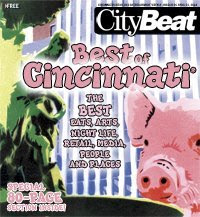Jeff Spelman invented Quick Count for his sons, before realizing that the game would be appealing to football fans everywhere.
"I made this for my kids first," Spelman remembers. "I came up with the rules and the look and feel of the cards. In the beginning I designed the first decks on my computer, printed the faces out, cut them, and taped the faces to old decks of playing cards. At the time, my intention was to make this just for my children. Then, after showing the game to some friends and family, I realized that Quick Count would be fun for a lot of people. There was one big challenge, ‘how could someone with no experience inventing games actually get their idea to market?’
“I was encouraged by recalling a story from my childhood. I grew up in a small Cincinnati suburb called Reading. Around 1970, a man from my hometown had a similar idea and dream. He was a barber, who had invented a really fun card game. He followed his dream and self-funded the first round of decks and sold them out of his barber shop. Not long after that he began selling them at a small grocery store in Reading, which happened to be right across the street from my great-grandmother's house."
That game was the eventual worldwide best-seller Uno.
Decades later, Spelman has pushed forward with his idea as well. In a matter of months, his game had a name – Quick Count - and was being produced by United States Playing Cards in Cincinnati, maker of the world’s leading playing card brands.
Prior to inventing Quick Count, Spelman worked over 20 years in various sports and media positions. Between 1984-1991, he worked in the Sports Information Offices at the University of Louisville, University of Notre Dame and University of Virginia .
During his time in college athletics, Spelman worked with Louisville's 1986 NCAA championship basketball team; Notre Dame's undefeated national championship football team in 1988; and Virginia's No. 1 nationally-ranked football team in 1990. During that 1990 season, Spelman also gained national attention for his innovative Heisman Trophy campaign for quarterback Shawn Moore, who finished 4th in the Heisman voting, the highest finish by a University of Virginia player in over 50 years.
By the age of 24, Spelman had already established a surprisingly diverse and interesting resume in sports and media, enjoying positions many in the business wait a lifetime to experience.
In addition to his work in college athletics Spelman had already worked:
- As a Floor Manager for ESPN's Top Rank Boxing
- A freelance statistician and researcher for NBC, CBS, ABC and ESPN
- Publicity Asst. for the former Louisville Redbirds (AAA baseball team)
- Assisistant Media Director for the 1987 Pan American Games serving as a liasion between the Organizing Committee and various Latin American television networks
- Sports Intern at WLWT-TV (Cincinnati), where as a 16-year old high schooler, Spelman befriended a big New York Yankees fan in the station's newsroom. "He'd always want to know how the Yankees were doing," Spelman recalls. "I'd drop by his desk a few times each shift to give him updates, or just tear some copy off the AP wire with the update and sit in on his desk if he were busy." The time was the early-1980s. The newsman was Jerry Springer.
In 1991, less than a year after running the Heisman Trophy campaign and working with his second #1 nationally-ranked college football team in three years, Spelman left college athletics to scratch an entreprenuerial itch. He founded Team One Baseball, creating what has become a multi-million dollar high school baseball showcase industry ... forever changing the way top high school baseball players are scouted.
During his first year, Spelman signed Alex Rodriguez and future Cy Young winner Chris Carpenter. He later scouted and signed All-Stars such as David Wright, C.C. Sabathia, Prince Fielder, Mark Teixeira, Roy Halladay and over 165 other Major League Baseball players. Between 1992-2006, Spelman's Team One Showcase players were drafted over 1,900 times and earned over a half a billion dollars in signing bonuses and Major League salaries. Spelman signed future Major Leaguers from over 30 different states, plus Canada, the Dominican Republic and Venezuela. His Showcases also featured players from Australia, Taiwan and Germany.
Spelman's expertise in the baseball scouting industry led to him writing for nationally-popular websites CBSSportsline.com and MLB.com. He also served as the National Baseball Scouting Director for Rivals.com and was a frequent sports talk radio guest across the nation, commenting on the Baseball Draft, and top high school, college and Minor League Baseball players.
Spelman sold Team One Baseball in 2004 and continued to work in baseball before leaving the sport in 2006. He then founded Spelman Media, Inc. and invented the game Quick Count.
Spelman, his wife, and three sons reside in Northern Kentucky.















